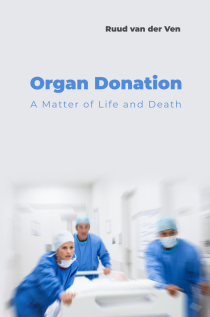Product Zoeken
(alle uitgevers)
(alle uitgevers)

You are confronted with it unexpectedly. Your loved one has an accident and is declared 'brain-dead'. Before this really sinks in, your dear person is rushed through the hospital corridors to the operating room. Or, if you live in the United States, your loved one may be declared 'dead' two minutes after cardiac arrest and is then also rushed to the operating room. The aim here is to keep the organs in good condition so that they can be donated.
In this book, the author attempts, as far as possible, to enter four worlds.
The first world is that of the grieving family. For them, the key question is whether the 'brain-dead' person is really dead. He or she seems more like they are sleeping. Can they still think or feel pain, and is complete anesthesia necessary? In the case of cardiac arrest, the person appears to be dead, but is two minutes enough to be certain?
The second world is that of the nurses and doctors. They do what they can professionally. However, it affects some more than others.
A third world is that of the 'brain-dead' person who has regained consciousness and enthusiastically recounts how he or she experienced everything. Much was said and done around the patient. He or she had felt so powerless to make it clear that 'I am still here!' The question arises as to what extent the 'dead' person is still conscious.
A fourth world is that of the recipient of the organs. The author also gives them a voice. They live in constant fear and tension about whether the organ they so desperately need will arrive in time. The question of where the exact boundary between life and death lies is of fundamental importance. Does it even exist?
The author explores the deeper background of transplant medicine.
Where did this medicine originate? What was its source? The book ends with a chapter on alternatives to transplant medicine. Are there disadvantages to be found in the possibility of rejection reactions and the side effects of the many medications that must be taken? The question arises whether there is a form of medicine without these disadvantages. There are still many people who have not made a decision for or against organ donation. Under the new legislation (in The Netherlands), 'not choosing' means that you are automatically a donor.
May this book help readers to make the right choice.